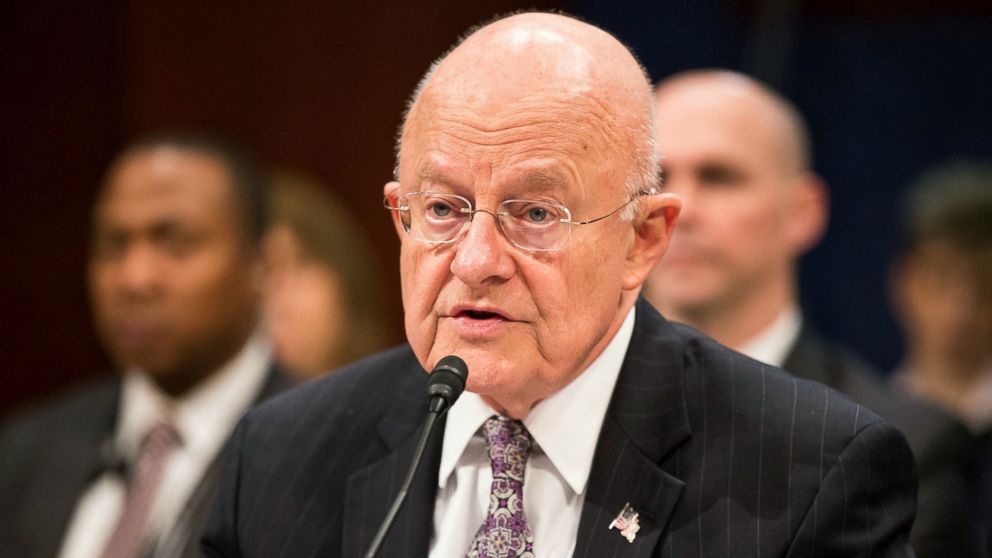Intelligence Chief Says Presidential Campaigns Are Cyber Targets
Intel chief James Clapper says there is evidence campaigns have been hacked.

— -- Director of National Intelligence James Clapper said today that presidential campaigns are a target for cyber intruders and that this political season has already seen some attempted hacks.
"We have already had some indications of that," he said in response to a question about campaign website hacking, after speaking at the Center for Bipartisan Policy in Washington, D.C.
"I anticipate as the campaigns intensify, we will probably have more of it," he added. He did not provide specifics about any attacks, but it has been reported that some hacking groups, such as Anonymous, have threatened to launch "total war" against Donald Trump's presidential campaign.
In March the Trump campaign, responding to a possible hack by Anonymous, told ABC News in a statement, "The government and law enforcement authorities are seeking the arrest of the people responsible for attempting to illegally hack Mr. Trump’s accounts and telephone information."
In 2009, President Barack Obama revealed that his campaign had been the victim of hackers.
Clapper said the Department of Homeland Security and the FBI are educating candidates about potential cyber threats. Speaking generally about threats, he said that the most obvious cyber protections are still the most effective, such as using security software, compartmentalizing data and not falling for phishing scams.
Brian Hale, a spokesman for Clapper, would not discuss specific threats. "We're aware that campaigns and related organizations and individuals are targeted by actors with a variety of motivations — from philosophical differences to espionage — and capabilities — from defacements to intrusions," he said.
The intelligence chief was also asked about the DNI's responsibility to provide intelligence briefs to presidential nominees and the prospect of providing specially tailored ones for Trump, given his unconventional statements on foreign policy.
"The question implies that we have a separate message for each candidate, and we do not," Clapper said.
"We have a long-standing practice of briefing each of the major candidates once they are officially designated, and that sort of shifts into higher gear in terms of detail once the president-elect is known," he explained. "So we have been doing this — the intelligence community has been doing this for many years. It is not designed to shape anybody's worldview. We brief as we normally would each of them, and they have to be exactly the same. And so we will do that again for this campaign, once the candidates are officially known for each party."




